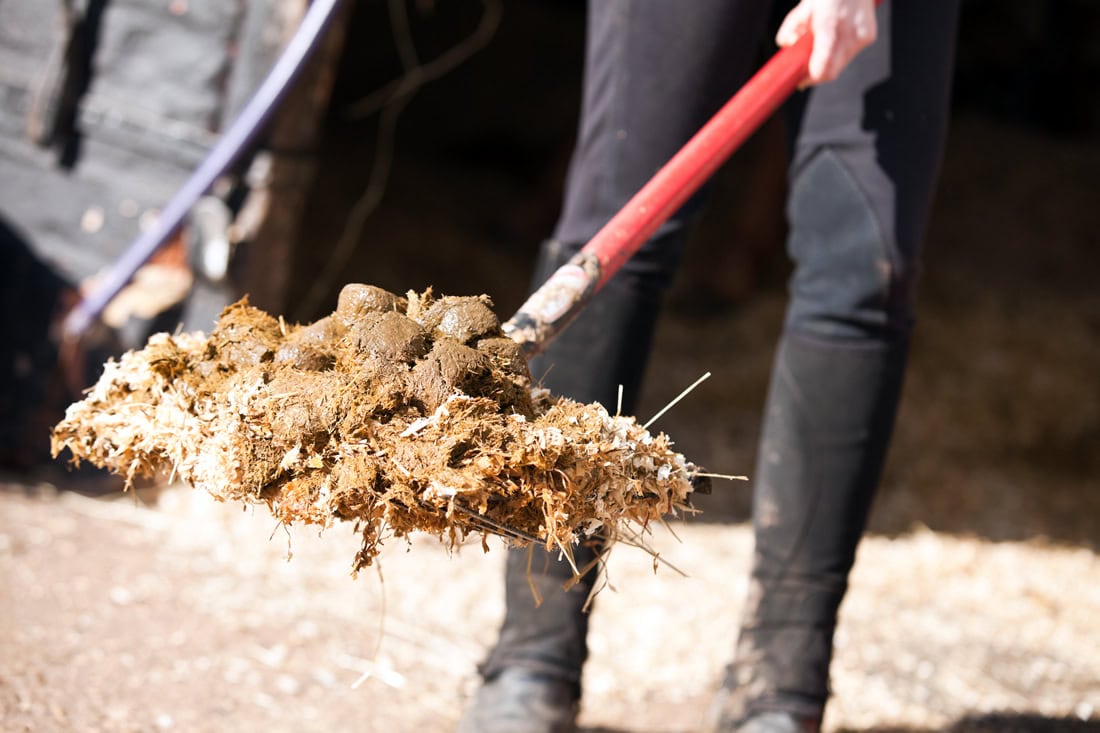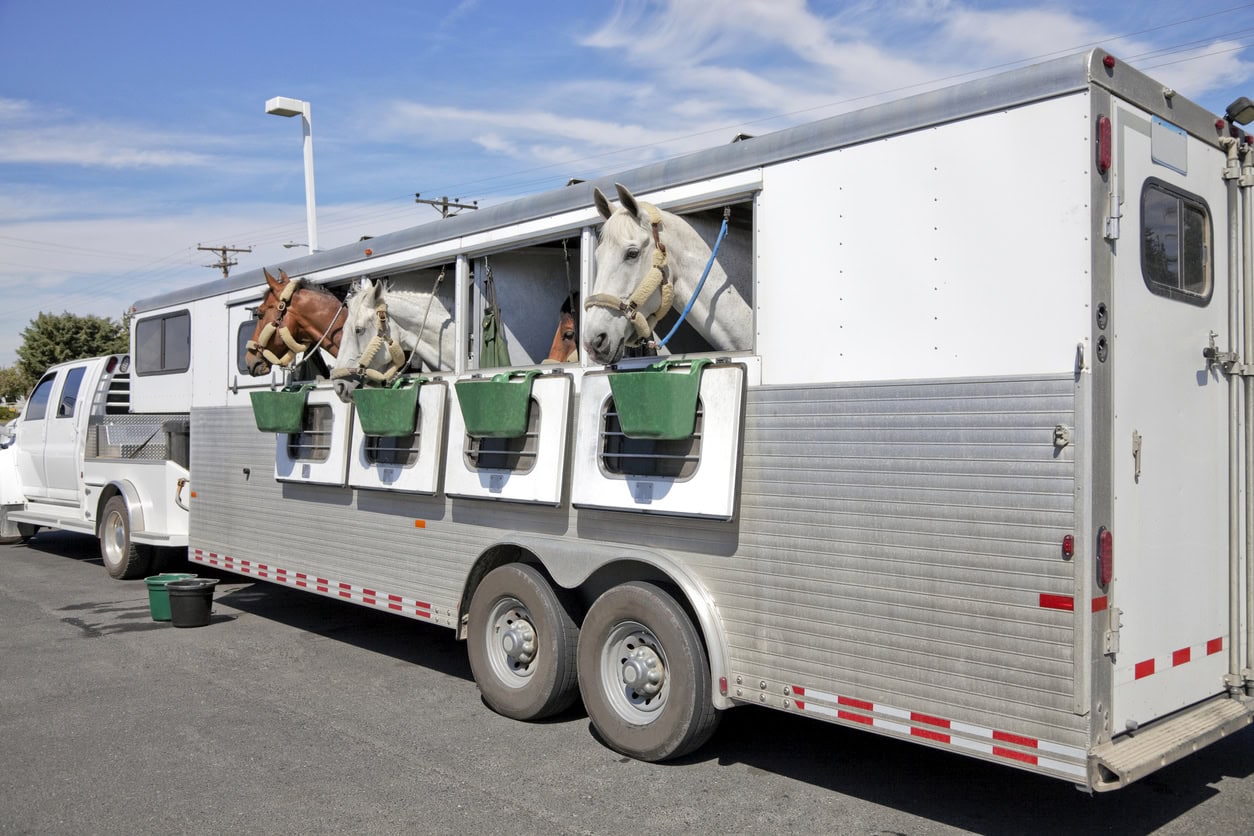Clipping a horse’s coat is often messy and time-consuming. It can also be stressful for both horses and humans. With the right approach, clipping your horse doesn't have to be a dreaded chore. Cl...
Managing manure is an inevitable aspect of equine stable maintenance and requires careful consideration. A successful manure management program will depend on multiple factors including the number of ...
Moodiness in mares has long been a topic of discussion among horse owners, often leading to misconceptions about their behavior. Scientific research has shed light on the true causes behind moody mare...
The ability to properly chew and grind food is essential for nutrient digestion and absorption. Dysmastication is a condition involving impaired chewing- also known as mastication. Horses that are una...
Donor colostrum ensures that a foal receives necessary immune support, even if colostrum is insufficient or unavailable from its mother. Breeders can collect and store their own donor colostrum or use...
Windpuffs develop due to the accumulation of fluid within the digital sheath, which envelops and protects both the Deep Digital Flexor Tendon (DDFT) and the Superficial Digital Flexor Tendon (SDFT). A...
Antioxidants are important nutrients for horses that help to combat oxidative stress, maintain overall health, and support performance. They work by neutralizing harmful molecules known as free radica...
Moving a horse to a new barn or facility requires careful planning and consideration. Horses are sensitive animals and are prone to experiencing stress when relocating to a new environment or joining ...
Proud flesh, also known as granulation tissue, is a type of healing tissue in horses that forms naturally as part of the wound repair process. This tissue aids in wound healing by closing the gap betw...
Whey protein is a cost-effective, high-quality protein source that is safe to feed to horses. Whey is a common ingredient in commercial horse feeds and is also available as a standalone supplement. Wh...
Also referred to as ascorbic acid, vitamin C is an important water-soluble vitamin for horses. It works together with vitamin E and selenium to provide antioxidant protection against cell damage. Vita...
Horses are single stomach (monogastric) herbivores that evolved to graze on fiber-rich roughage. Their unique digestive system consists of a foregut and hindgut, each with different functions for brea...
Feeding horses with pituitary pars intermedia dysfunction (PPID), previously referred to as Equine Cushing’s disease, can be a challenge. Horses affected by PPID are typically older and may have oth...
Narcolepsy is a neurological and rapid eye movement (REM) sleep disorder. It involves the sudden onset of sleep during the daytime. The condition occurs chronically and throughout life in affected hor...
Hypothyroidism refers to inadequate production of thyroid hormones, primarily thyroxine and (T4) and triiodothyronine (T3). These hormones are produced by the thyroid gland and play a role in regulati...
Pituitary Pars Intermedia Dysfunction (PPID), previously referred to as Cushing’s Disease, is an endocrine-related disease that affects approximately 20-25% of senior horses, ponies, and donkeys. ...
In recent years, cannabidiol (CBD) has gained popularity as a natural remedy for some equine medical conditions. Currently, research into the effects of CBD on horses is very limited, and many reports...
Alopecia or hair loss in horses can occur for several different reasons and may be temporary or permanent. Alopecia refers to the partial or complete absence of hair that occurs in any area of the bod...
Chia seeds are derived from the Salvia hispanica plant and are fed to horses to support gut health and provide nutrients. A member of the mint family, chia has been cultivated for over 5,000 years in ...
Myosin Heavy Chain Myopathy (MYHM) is a muscle disease that can affect Quarter Horses and related breeds with the associated mutation in the MYH1 gene. MYH1, also called myosin heavy chain 1, is a gen...
Weaning foals refers to separating the foal from their mother so they no longer consume milk by nursing. Once weaned, foals must obtain nutrients from forage and other feeds. Domesticated foals are ty...
Retained fetal membranes (RFM), also referred to as retained placenta, is a condition that affects a small percentage of broodmares. RFM can lead to serious medical complications in affected mares and...
Preparing your broodmare for breeding and pregnancy requires careful planning to ensure she is in optimal condition to carry and deliver a healthy foal. A Breeding Soundness Exam (BSE) provides a heal...
A variety of supplemental oils including camelina, flax, soy, corn, fish, and canola are commonly used in equine diets. Although every oil provides the same amount of energy, each one has a different ...
Rice bran oil (RBO) is an increasingly popular fat supplement fed to horses for weight management, cool energy, and coat quality. The oil is derived from the germ and bran of brown rice grains and con...
Coconut oil is a popular fat supplement for horses used to promote weight gain, skin health and a shiny coat. It is also used as a cool energy source for exercising horses to add calories to the diet ...
Also known as linseed, flaxseed is produced from the flax plant and can be used to provide fat, protein, and fibre in the equine diet. Flax products are cost-effective, calorie-dense and commonly fed ...
An increasingly popular equine forage, teff grass is grown in warm geographic regions and is commonly cultivated in the Southern USA. Native to Africa, teff is a warm-season grass that is high in fibr...
Proper vitamin and mineral nutrition is critical to maintaining your horse's health and well-being. But how do you ensure that your horse gets everything they need to balance their diet? Horses on a f...
Whether you are a horse owner, handler or the manager of an equine facility, biosecurity plays an important role in keeping horses under your care safe and healthy. Horses can be affected by many diff...


































